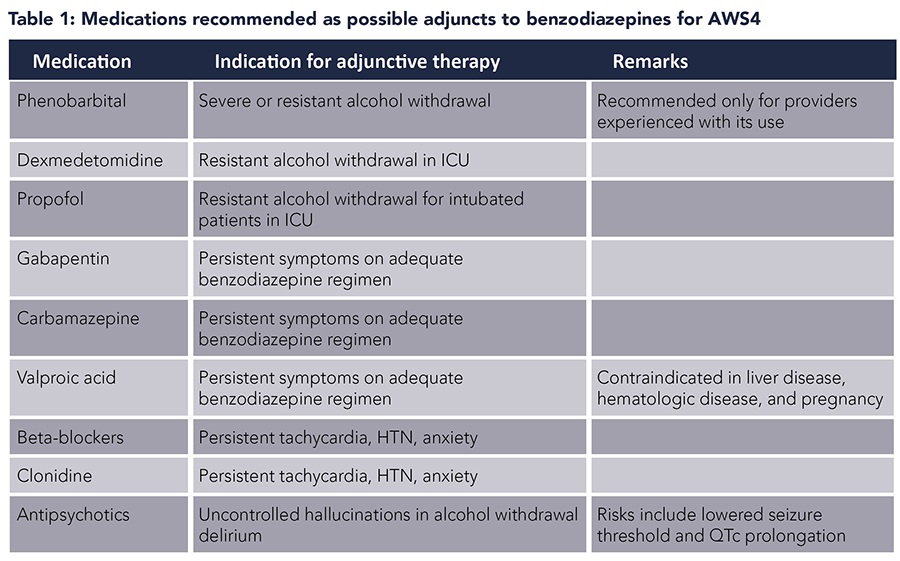Benzodiazepines are a powerful tool in treating alcohol withdrawal. They can reduce the symptoms of withdrawal, such as anxiety, tremors, and seizures, and help prevent complications related to alcohol withdrawal. In this article, we will discuss why benzodiazepines are so effective for treating alcohol withdrawal and why they are used as part of a comprehensive treatment program. We will also discuss the potential risks associated with benzodiazepine use and how to minimize them.
Benzodiazepines are medications used to treat alcohol withdrawal symptoms. They work by calming the central nervous system and reducing anxiety. Common benzodiazepines used for alcohol withdrawal include diazepam (Valium), chlordiazepoxide (Librium), lorazepam (Ativan), and oxazepam (Serax). These medications can help reduce the severity of withdrawal symptoms such as agitation, anxiety, tremors, nausea, vomiting, and seizures.

Exploring the Use of Benzodiazepines for Alcohol Withdrawal
Benzodiazepines are a class of medications used to treat a wide range of conditions, including anxiety, insomnia, seizures, and alcohol withdrawal. In the context of alcohol withdrawal, benzodiazepines act to reduce the severity and duration of withdrawal symptoms, which can be severe and potentially life-threatening. This article will explore the use of benzodiazepines for alcohol withdrawal, including the benefits, risks, and potential side effects.
Understanding Alcohol Withdrawal
Alcohol withdrawal is a set of symptoms that can occur when a person abruptly stops drinking alcohol after a period of heavy and prolonged drinking. Alcohol withdrawal can range from mild to severe, and symptoms can include anxiety, insomnia, nausea, sweating, tremors, and more. In severe cases, alcohol withdrawal can cause seizures, seizures with delirium (delirium tremens), and even death.
The Role of Benzodiazepines in Alcohol Withdrawal
Benzodiazepines are medications that act on the brain to reduce the activity of certain neurotransmitters, including GABA and glutamate. This helps to reduce the severity of alcohol withdrawal symptoms and helps to prevent more severe symptoms, such as seizures and delirium tremens. In addition to reducing withdrawal symptoms, benzodiazepines can also help to reduce cravings for alcohol.
Types of Benzodiazepines Used for Alcohol Withdrawal
The most commonly used benzodiazepines for alcohol withdrawal are chlordiazepoxide (Librium) and diazepam (Valium). These medications are typically administered in tapering doses over a period of several days or weeks. Other benzodiazepines, such as lorazepam (Ativan) and oxazepam (Serax), may also be used.
Benefits of Benzodiazepines for Alcohol Withdrawal
Benzodiazepines are effective in reducing the severity and duration of alcohol withdrawal symptoms. They can also reduce the risk of more severe symptoms, such as seizures and delirium tremens. In addition, benzodiazepines can help to reduce cravings for alcohol, which can help to prevent relapse.
Risks of Using Benzodiazepines for Alcohol Withdrawal
Although benzodiazepines can be effective in treating alcohol withdrawal, they also carry certain risks. These include the potential for physical and psychological dependence, as well as the potential for misuse and abuse. In addition, benzodiazepines can have side effects, including sedation, dizziness, confusion, and impaired cognition.
Final Thoughts on Benzodiazepines for Alcohol Withdrawal
Benzodiazepines can be an effective treatment for alcohol withdrawal. They can reduce the severity and duration of symptoms, as well as reduce the risk of more severe symptoms. However, benzodiazepines can also carry certain risks, including the potential for physical and psychological dependence, misuse, and abuse. Patients should discuss the potential risks and benefits of using benzodiazepines for alcohol withdrawal with their doctor before starting treatment.
Related Faq
1. What are Benzodiazepines?
Benzodiazepines are a class of medication used to treat anxiety, insomnia, muscle spasms, alcohol withdrawal, and seizures. They work by slowing down the activity of the central nervous system. They are commonly used to help with anxiety and insomnia, but they can also be prescribed to help with alcohol withdrawal.
2. How Do Benzodiazepines Help with Alcohol Withdrawal?
Benzodiazepines help with alcohol withdrawal by reducing the severity of the withdrawal symptoms and reducing cravings. They can also reduce the risk of seizures, which is a common symptom of alcohol withdrawal. They work by slowing down the activity of the central nervous system, which helps to reduce anxiety and other withdrawal symptoms.
3. What Are the Side Effects of Benzodiazepines?
Common side effects of benzodiazepines include drowsiness, dizziness, confusion, muscle weakness, blurred vision, and difficulty concentrating. Less common side effects include headache, nausea, and changes in sex drive. In some cases, benzodiazepines can also cause dependence and addiction.
4. Who Should Not Take Benzodiazepines?
Benzodiazepines should not be taken by people with a history of drug or alcohol abuse, people who have had an allergic reaction to a benzodiazepine, or people with certain medical conditions such as glaucoma, liver or kidney disease, or asthma. Benzodiazepines should also not be taken by pregnant women or people who are breastfeeding.
5. How Are Benzodiazepines Taken?
Benzodiazepines are usually taken orally, either as a pill or liquid. They can also be taken as a nasal spray or an injection into a muscle. The dosage and frequency of the medication will depend on the individual and the severity of the alcohol withdrawal symptoms.
6. What Are the Risks of Taking Benzodiazepines?
The risks of taking benzodiazepines include addiction, dependence, and overdose. They can also cause drowsiness and impaired coordination, which can increase the risk of accidents and falls. Long-term use of benzodiazepines can also cause memory problems and confusion. It is important to talk to your doctor before taking benzodiazepines.
Do Benzos Stop Alcohol Withdrawal?
In conclusion, benzodiazepines are an effective and safe treatment option for alcohol withdrawal. They help to reduce the severity of symptoms, reduce the risk of complications, and improve overall outcomes. While there are other treatment options available, benzodiazepines provide the best balance between safety and effectiveness. If you or someone you know is suffering from alcohol withdrawal, it is important to consult with a qualified healthcare professional about the potential benefits of using benzodiazepines.
